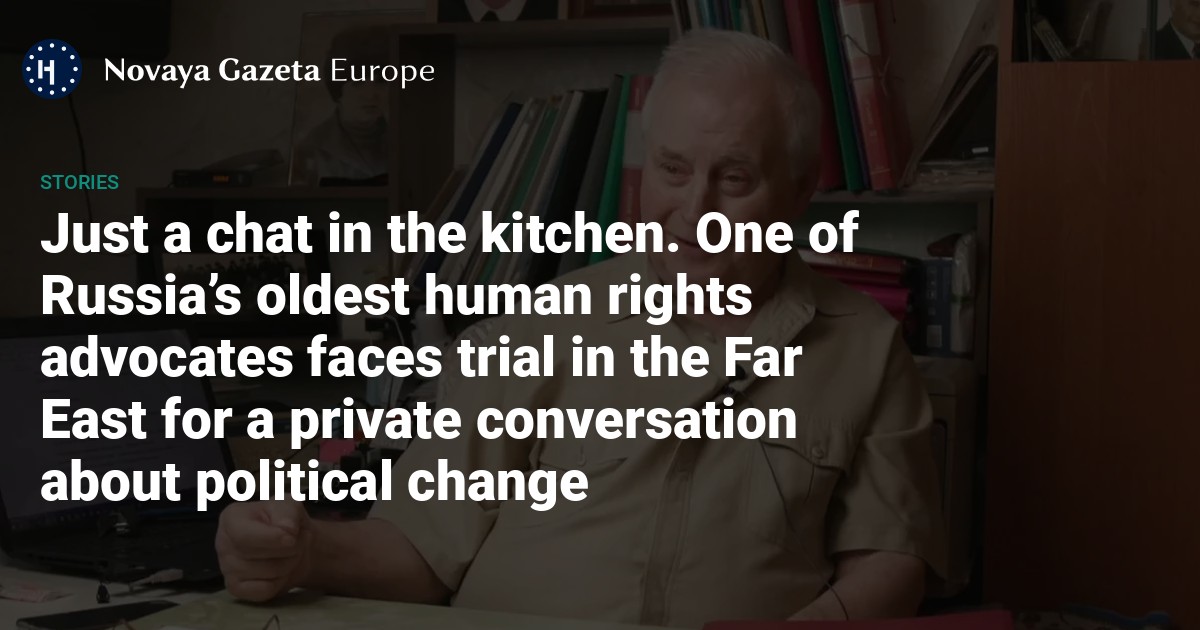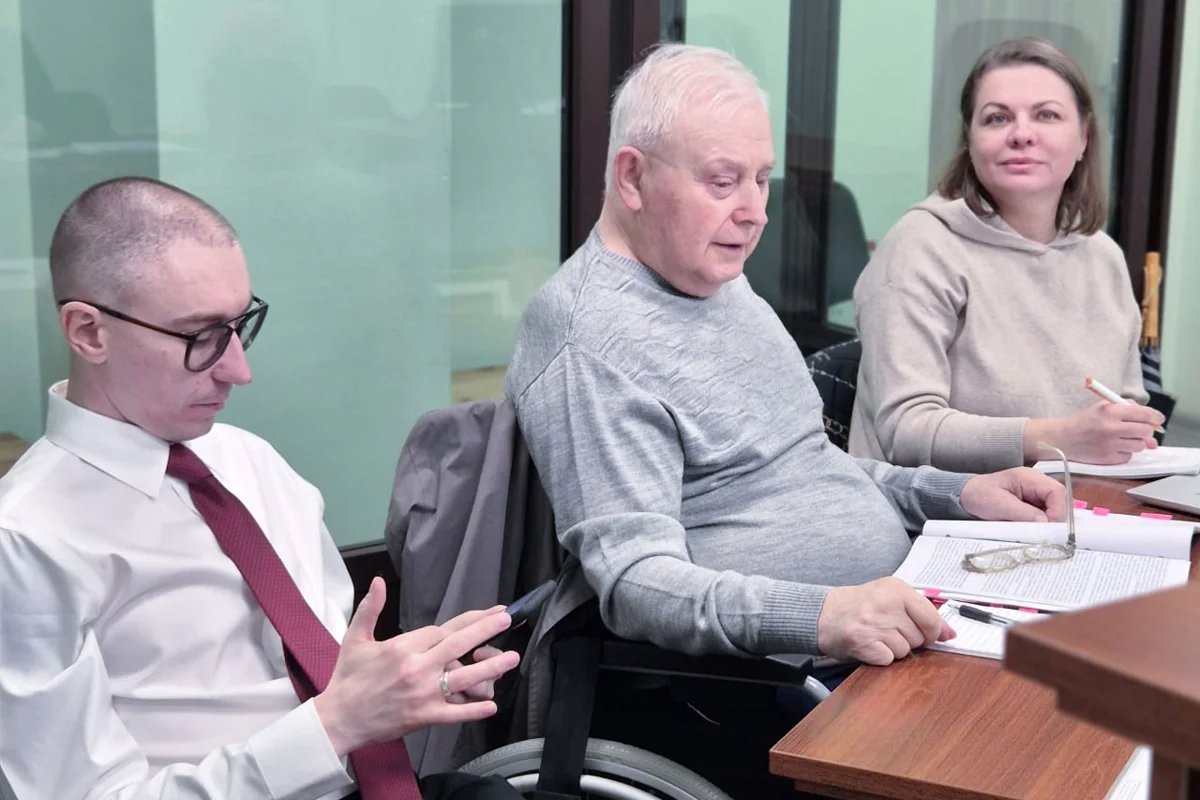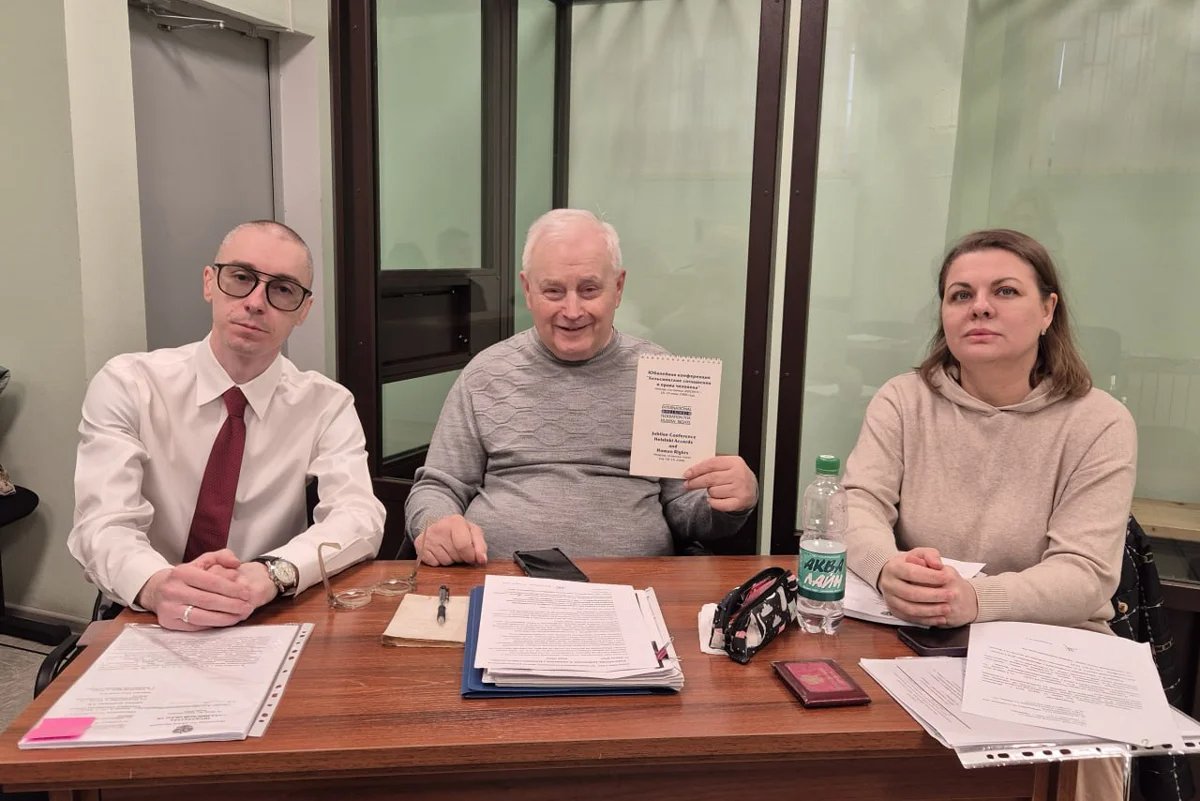



In a modest flat on Sakhalin, an island on Russia’s remote Pacific frontier, a frail man in a wheelchair once gathered with friends to discuss the future of their country. What unfolded there — a private conversation between long-time acquaintances — might, in another time or place, have been little more than a footnote in their lives. But in Vladimir Putin’s Russia, where speech is increasingly criminalised and dissent viewed as sabotage, it has become the basis for a criminal prosecution.
That man is 86-year-old Mark Kuperman, the first mayor of the oil town of Okha and now a well-known human rights advocate. In April 2024, he found himself on trial, accused of “public incitement to terrorism” — a charge that could carry years in prison. His alleged crime? Sharing an unpublished political essay and discussing it in his kitchen.
For 18 months, Kuperman had been under the surveillance of the Russian security services. His home was bugged. According to investigators, one of his own acquaintances even filed a denunciation against him — a practice reminiscent of Soviet-era informant culture.
The charges stem from a document titled A Plan for Western Involvement in Regime Change in Russia: Humanitarian Occupation, which authorities claim Kuperman circulated. The title alone was enough to raise suspicion in today’s Russia. But the document itself was actually penned by another prominent human rights figure, Lev Ponomaryov.
According to Kuperman’s lawyer, Natalya Kasilova, the document had been sent to him in January 2023 by Ponomaryov, who by then had left Russia and was living in exile.
“This whole case would be laughable if it weren’t so tragic,” Ponomaryov says. “Mark asked me what I was working on. I told him I was drafting an article and sent him a fragment — unsigned.”
Kuperman then forwarded the article to seven close contacts. “You can hardly call that public dissemination,” says Ponomaryov, noting that the article, in a revised form, was eventually published by the French journal Le Grand Continent under the title After Putin: Accelerating Democracy in Russia?
Despite the provocative tone of the original draft, Ponomarev insists it never advocated for military action or literal occupation. “‘Humanitarian occupation’ was about increasing anti-propaganda efforts — like boosting broadcasts from Radio Free Europe and other outlets,” he says.
Nonetheless, the security services had already taken notice. A day after Kuperman sent the text, on 16 January 2023, a meeting took place at his home involving Ponomaryov, who joined the conversation online, and the recipients of the document. The group discussed Russia’s war in Ukraine, and the so-called “plan”. Some participants reportedly criticised the document as too radical.
“There were words attributed to Kuperman during the conversation that may have described the document as ‘revolutionary, to put it mildly’,” says Kasilova, noting that her client has always supported peaceful change.

Mark Kuperman (C) in court. Photo: ZPCH / Telegram
That conversation, recorded by hidden surveillance equipment, would become the foundation of the criminal case. Though no action was ever taken following the meeting, and no public distribution occurred, the case against Kuperman slowly advanced. By April 2024, security officers had come to his home and those of his acquaintances. Kuperman was formally charged — first with “extremism”, which later escalated to “incitement to terrorism”.
Of the seven recipients of the article, four testified that they had never even read it.
The case is filled with contradictions and troubling details. Of the seven recipients of the article, four testified that they had never even read it. Two said they skimmed it but couldn’t remember its contents. Regardless, the investigator required all of them to read and summarise it later, effectively doing more to circulate the ideas than Kuperman ever did, Kasilova says.
Hearings took place in Yuzhno-Sakhalinsk over two days on 7 and 8 April. Kuperman, who is confined to a wheelchair, was forced to appear in person. His wife testified, as did her friend Vera Boltunova, who insisted that the kitchen gathering was informal: “Just a chat. No decisions were made.”
Then came the more sinister testimonies. Vyacheslav Kalashnikov, a long-time acquaintance who had helped Kuperman with office equipment, claimed to have taken the article to the regional Federal Security Service (FSB) office voluntarily, alleging that it called for the violent overthrow of the state. But Kasilova doubts he had done it on his own accord, and suggests he may have been pressured into it.
Worse still was the testimony of a “secret witness” who accused Kuperman of being “anti-Russian” and sympathetic to Western and Ukrainian policies. Kuperman believes the man behind the pseudonym is Maxim Yermolenko — a young acquaintance he once tried to help avoid conscription.

Mark Kuperman (C) in court. Photo: ZPCH / Telegram
According to Kasilova, Yermolenko had been present at the 2023 meeting and had planned to fly to Moscow and leave the country shortly thereafter. But plainclothes officers detained him on the way to the airport.
Two years later, Yermolenko is in the clear, and he never left Russia. Kasilova suspects a deal was struck: “It appears the criminal case against him was dropped in exchange for testifying against Kuperman.”
Yermolenko has yet to appear in court, despite being summoned under his real name.
Meanwhile, Kuperman remains under a travel ban. He is 86 now, reliant on others for mobility — but defiant.
“I’ve seen how hard it is for him to even get out of bed. But he keeps going.”
“He has incredible willpower,” says Kasilova. “I’ve seen how hard it is for him to even get out of bed. But he keeps going.”
Kasilova believes publicity is Kuperman’s best hope. “He has nothing to hide. But Sakhalin is far from Moscow, and there are so many other problems in Russia. His case gets forgotten.”
His health technically makes imprisonment illegal, but few expect the system to show mercy. Convictions under this charge almost always end in custodial sentences — 99% of the time, Kasilova notes.
“In a truly independent court, the verdict would be an obvious acquittal. But in the courts we have, I honestly don’t know what to expect.”
The Russian government has banned independent media. We were forced to leave our country in order to keep doing our job, telling our readers about what is going on Russia, Ukraine and Europe.
We will continue fighting against warfare and dictatorship. We believe that freedom of speech is the most efficient antidote against tyranny. Support us financially to help us fight for peace and freedom.
By clicking the Support button, you agree to the processing of your personal data.
To cancel a regular donation, please write to [email protected]
VPNovaya
Help Russians and Belarusians Access the Truth
